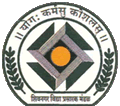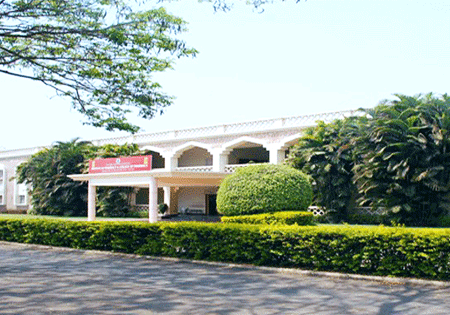College of Phamacy was established in June 1994 under the auspicious of Shivnagar Vidyaprasarak Mandal, Malegaon, Baramati with the objective of promoting good quality education to the young and deserving candidates in the field of pharmacy. Hon. Shri. Sharadchandraji Pawar, President of the Trust takes keen interest in the functioning of the college. It is his endavour to develop the college in best possible manner.
Vision :
To transform youth power into knowledgeable, skilled & competent pharmacy professionals.
Mission :
- To articulate specific, achievable & measurable learning goals.
- To identify & bridge the gap in the curriculum to make learners pertinent to the current needs.
- To design & implement academic practices focused on the holistic development of learners.
- To offer ample opportunities for the classroom as well as experiential learning & formative assessments.
Long Term Goals :
- To improve students’ performance in university & other competitive examinations.
- To foster efforts to inculcate & cultivate the spirit of research.
- To evolve an environment that fosters innovation & entrepreneurship development.
- To evolve as an institute that personalizes pharmacy education.
Short Term Goals :
- To implement radical changes in goal setting, assessments & teaching-learning process.
- To ensure the availability of infrastructure & physical facilities.
- To strengthen Industry-Institute interaction for training, placements & collaborative activities.
- To opt for a ‘Learning Management Platform’ supporting the personalization of education.
- To develop an in-house ‘Teacher Training System’ to accommodate the emerging change.
- To prepare for & qualify for Academic Quality Audit (NAAC / NBA) by 2024.
Values:
We value excellence, innovation, diversity in ideas & in community, academic integrity, freedom & transparency. We also value morality, accountability of profession & accountability of resources; responsiveness to changing needs of society & commitment to quality education.
PROGRAMME EDUCATIONAL OBJECTIVES (PEO’S) :
On successful completion of undergraduate (B. Pharm) programme, the graduates shall be able do the following:
- Communicate effectively & apply the knowledge & skill of Pharmacy in the best interest of the patients and the community.
- Work independently as well as a member of a team & plan his/her work for efficient use of time and resources.
- Identify, formulate & solve the problems & think and evaluate scientifically, critically & ethically.
- Find employment in the Pharmaceutical production, Pharmaceutical Quality Control, Pharmaceutical sales & distribution, Dispensing of medicine as Hospital or Community Pharmacist, Regulatory Affairs (as Drug Inspector), Academics (as Assistant Professor), or in the Drug Information Services etc.
- Qualify competitive examinations such as GPAT, GATE, M. Pharm CET, MBA CET, MPSC (Drug Inspector), GRE, TOEFL, IELTS etc.
- Get admission for higher studies such as M. Pharm, MBA, M. Tech, M.S. etc in Indian or Foreign Universities.
- Start his/her own enterprise such as Retail or Wholesale Drug Store, Drug Information Services, Cultivation of Medicinal & Aromatic Plants, Value-addition Natural Products, Manufacturing Unit of Medicinal & Cosmetic Products, Drugs & Food Testing Laboratory etc.
- Elucidate contemporary issues & able to explain professional & ethical responsibility.
- Help and participate in the implementation of National Health Programs.
- Recognize the need for, & ability to engage in life-long learning to serve community better.
PROGRAM OUTCOMES (PO’s) :
- Pharmacy Knowledge : Possess knowledge and comprehension of the core information associated with the profession of pharmacy, including biomedical sciences; pharmaceutical sciences; behavioral, social, and administrative pharmacy sciences; and manufacturing practices.
- Thinking Abilities : Utilize the principles of scientific inquiry, thinking analytically, clearly and critically, while solving problems and making decisions during daily practice. Find, analyze, evaluate and apply information systematically and shall make defensible decisions.
- Planning Abilities : Demonstrate effective planning abilities including time management, resource management, delegation skills and organizational skills. Develop and implement plans and organize work to meet deadlines.
- Leadership skills : Understand and consider the human reaction to change, motivation issues, leadership and team building when planning changes required for fulfillment of practice, professional and societal responsibilities. Assume participatory roles as responsible citizens or leadership roles, whenever appropriate, to facilitate improvement in health and well-being.
- Professional Identity : Understand, analyze and communicate the value of their professional roles in society (e.g. health care professionals, suppliers of pharmaceuticals, promoters of health, educators, business managers, employers, employees) through consideration of historical, social, economic and political issues.
- The Pharmacist and society : Apply reasoning informed by the contextual knowledge to assess societal, health, safety, legal and cultural issues and the consequent responsibilities relevant to the professional pharmacy practice.
- Environment and sustainability : Understand the impact of the professional pharmacy solutions in societal and environmental contexts, and demonstrate the knowledge of, and need for sustainable development.
- Ethics : Honor personal values and apply ethical principles in professional and social contexts. Demonstrate behavior that recognizes cultural and personal variability in values, communication and lifestyles. Use ethical frameworks, apply ethical principles while making decisions, and take responsibility for the outcomes associated with the decisions.
- Communication : Communicate effectively with the pharmacy community and with society at large, such as, being able to comprehend and write effective reports, make effective presentations and documentation, and give and receive clear instructions.
- Modern tool usage : Learn, select, and apply appropriate methods and procedures, resources, and modern pharmacy-related computing tools with an understanding of the limitations.
- Life-long learning : Recognize the need for, and have the preparation and ability to engage in independent and life-long learning in the broadest context of technological change. Self-assess and use feedback effectively from others to identify learning needs and to satisfy these needs on an ongoing basis.

